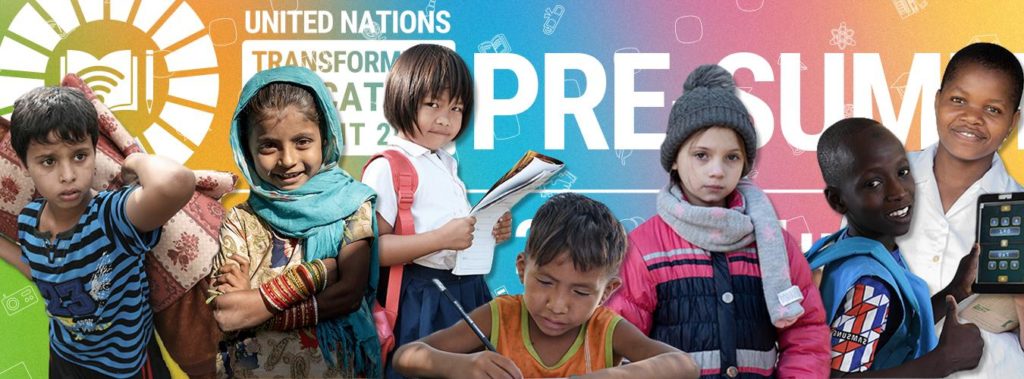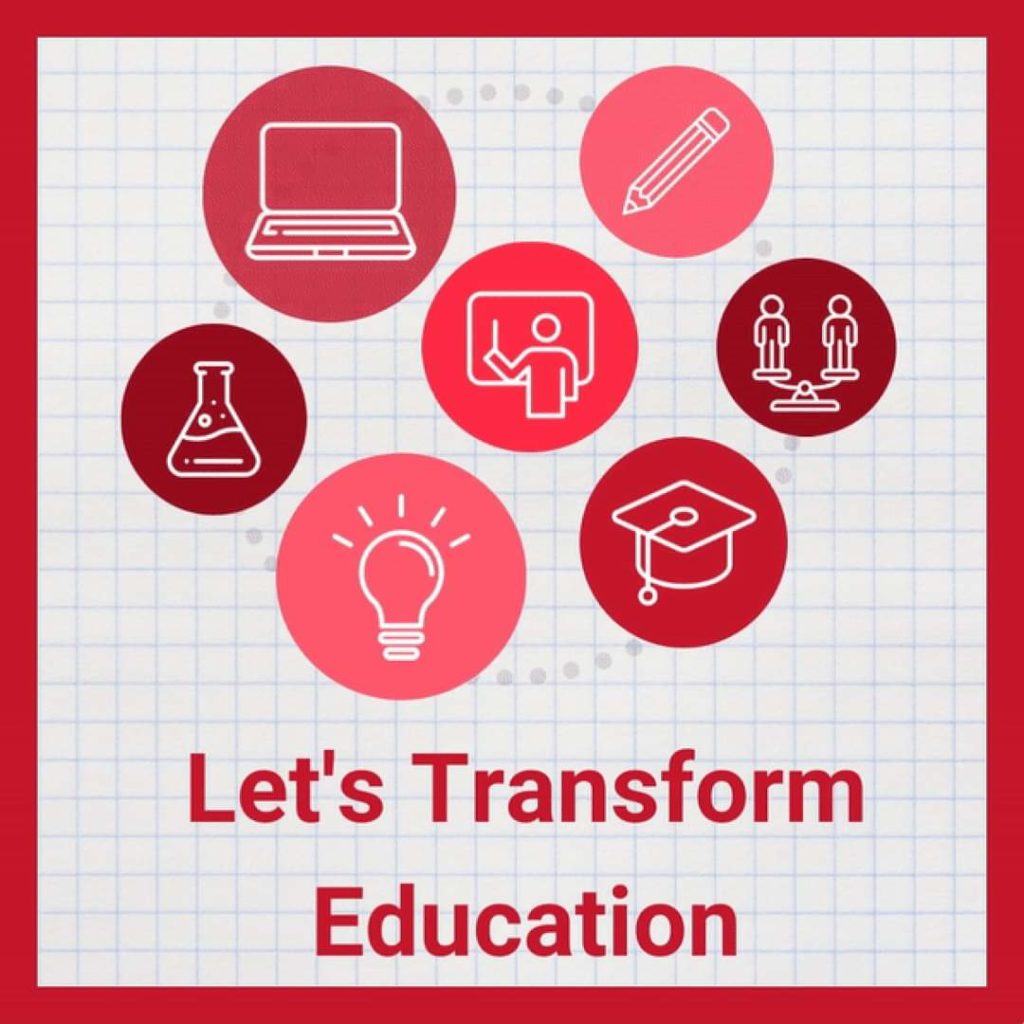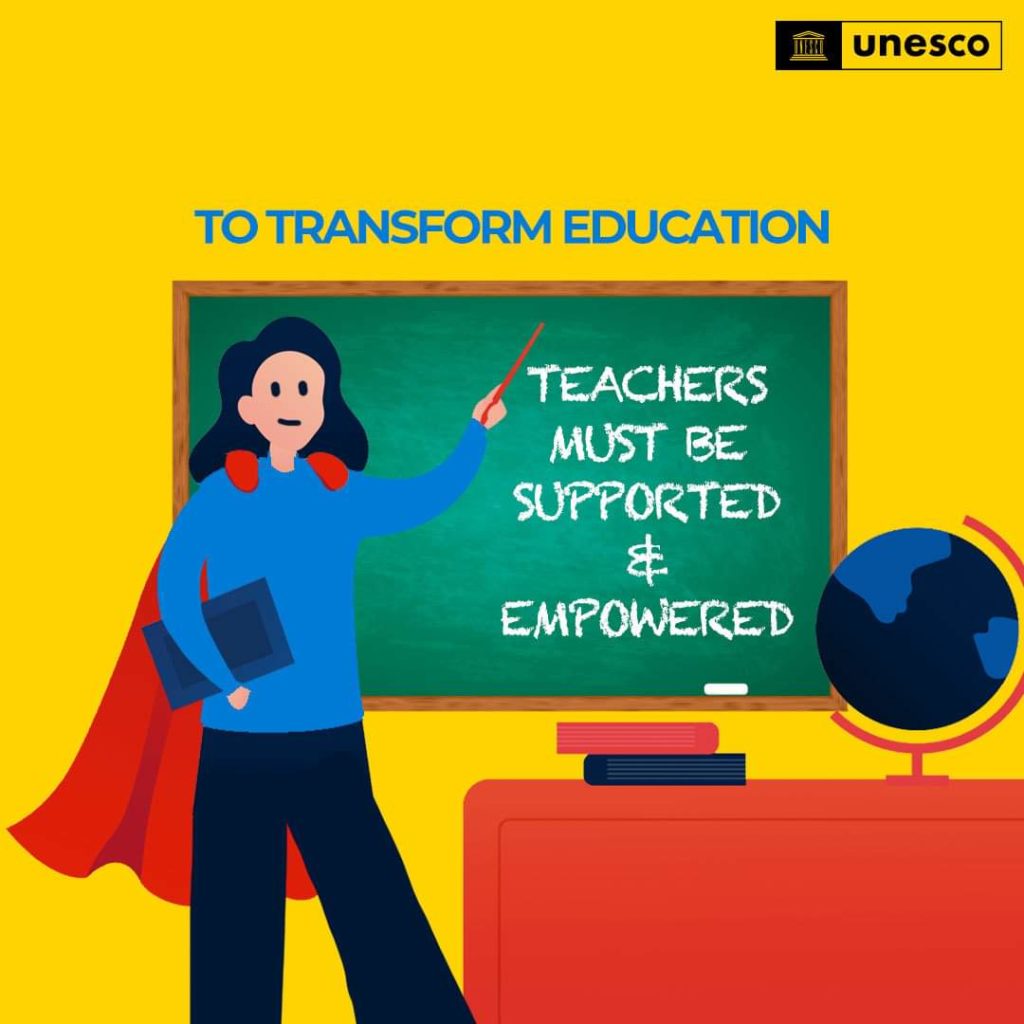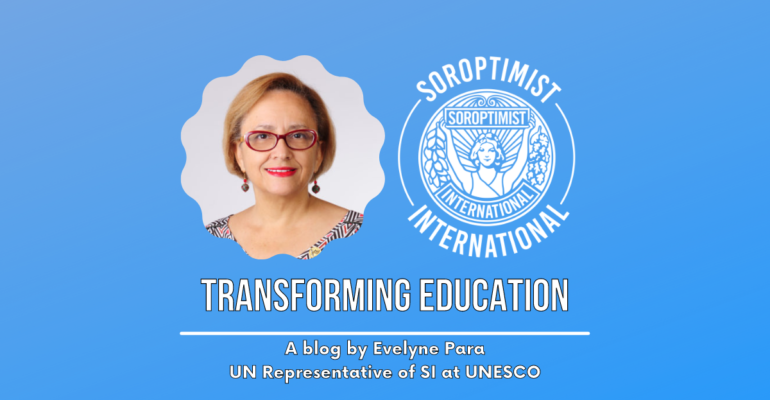Blog of Evelyne Para, SI UN Representative at UNESCO.
“On 28-30 June 2022 UNESCO hosted the Transforming Education Pre-Summit, a meeting of more than 2000 participants (face-to-face and via Zoom), including over 150 Ministers of Education, many civil society partners and NGOs’ representatives, policy and business leaders and youth activists, who came together to build a roadmap to transform education globally.

UNESCO Transforming Education
This important meeting is a precursor to the Transforming Education Summit (TES), to be held in September at the UN General Assembly in New York.
It allows elaborating initial content and establishing a shared vision with suggested actions for the TES Summit. It comes at a critical time when 40 percent of low and middle income countries have reduced their spending on education, and when many bilateral donors decreased also their aid to education.
Goal to achieve: radically change our approach to education systems after pandemic Covid-19, climate and conflict disruptions – especially for the most marginalised learners who are facing severe learning losses. At exactly midway through the 15-year period allocated to reach all the Sustainable Development Goals (SDGs), the various exchanges within the working groups during this Pre-Summit and the documents transmitted are clear: It’s time to act!

Image courtesy of UNESCO
Devastating pandemics, growing inequalities, democratic backsliding, accelerated digital revolution, global warming and loss of biodiversity… These are just some of the most pressing challenges that we are facing today in our interconnected world. And the list goes on! All the participants of UNESCO Pre-Summit said that our current global education system is failing to address these alarming challenges and provide quality learning for everyone throughout life. We know that education today is not fulfilling its promise to help us shape peaceful, just and sustainable societies.

Image courtesy of UNESCO
This is why it has never been more crucial to reinvent how we learn, what we learn and how we learn. These thoughts were detailed in UNESCO’s Futures of Education Report in November 2021, report which called for a new social contract for education. The last global UNESCO report on adult learning and education, citizenship education and empowering adults for change is also very informative, recalling the importance of providing all learners – of all ages in all contexts – the knowledge and skills they need to realise their full potential and live with dignity.
Key areas needed to transformation Education
During the Pre-Summit, Schools, Life-long quality learning, Teachers, Connectivity and Financing education were the main focus to shape a better world anchored in social, economic, and environmental justice.
1/ Inclusive, equitable, safe and healthy schools
High rates of poverty, exclusion and gender inequality continue to hold millions back from learning. Moreover, COVID-19 further exposed the inequities in education access and quality, and violence, armed conflict, disasters and reversal of women’s rights in many countries have increased insecurity.
2/ Learning and skills for life, work and sustainable development
In nowadays, more than 771 million people still lack basic literacy skills, two-thirds of whom are women. Since the COVID-19 pandemic, learning poverty has increased by a third in low and middle income countries, with an estimated 70% of 10-year-olds unable to understand a simple written text. Transforming education means empowering learners with knowledge, skills, but also values and attitudes to be resilient, adaptable and prepared for the uncertain future while contributing to human well-being and sustainable development. To do so, there must be emphasis on foundational learning for basic literacy and numeracy; education for sustainable development, which encompasses environmental, and climate change education; skills for employment and entrepreneurship.
3/ Teachers and teaching profession

Image courtesy of UNESCO
Teachers are essential for achieving SDG 4 and the transformation of education. But they are often poorly trained, unmotivated and not supported at all. Teachers are confronted by major challenges: teacher shortages; lack of professional development opportunities; low status and working conditions; and lack of capacity to develop teacher leadership, autonomy and innovation.
4/ Digital learning and education transformation
The COVID-19 crisis drove unprecedented innovations in remote learning through harnessing digital technologies. At the same time, the digital divide excluded many from learning, such as young women and girls in rural areas, with nearly one-third of school-age children (463 million) without access to distance learning. Investments and action in digital learning should be guided by the three core principles: Targeting the most marginalised; Free, high-quality digital education content; and Pedagogical innovation and change.
5/ Financing of education

Image courtesy of UNESCO
The surmounting costs of managing education during the COVID-19 pandemic, and the diversion of aid to other emergencies have left a massive global education financial gap amounting to US$ 148 billion annually. In this context, addressing the gaps in education financing requires policy actions in three key areas: Mobilizing more resources; increasing efficiency and equity of allocations and expenditures; and improving education financing data.
Achieving SDG 4 with and for Youth
A youth-led global engagement day preceded the UNESCO Pre-Summit on 28 June, bringing together youth from around the world for getting their voices in the conversation and providing opportunities for their perspectives on transforming education to be heard and acted on. Three themes were addressed by the young people: youth unemployment, literacy and skills development; green skills for climate action; and embracing active and global citizenship.
Education is in crisis. More than ever, transforming education requires a significant increase in investment in quality education, strong political commitment taking into account the wishes of youth, sound planning, and a robust evidence base. Next Summit: the TES on 19 September 2022 at the UN General Assembly in New York!”
For more information, visit the Transforming Education Summit website.

